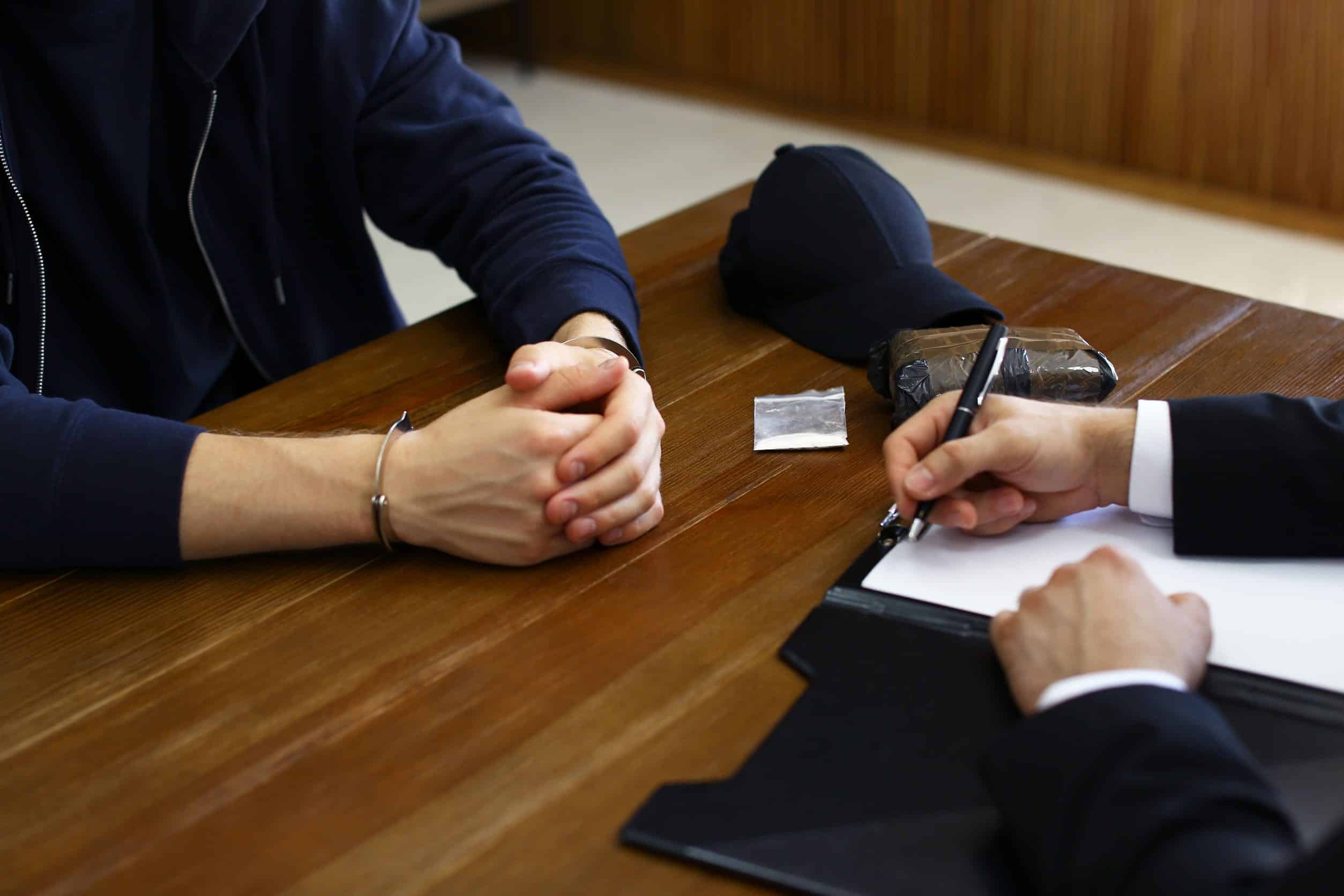- Home
- THE FIRM+
- Criminal Defense+
- CASE RESULTS
- AREAS WE SERVE+
- FAQ’s
- Blog
- Contact
AZHARI LLC BLOG

Posted By: Sami Azhari
Category:
You might be surprised to learn that 90 to 95% of both federal and state cases end in plea bargains. This is an agreement between the defense and the prosecution to resolve the case and avoid going to trial.
The prevalence of plea bargains suggests that there’s something in them for both the prosecution and the defense – but are they really a good idea?
We’ve put together a guide covering what, exactly, a plea bargain is, and whether you should consider taking one for your Illinois drug charge.
What Is a Plea Bargain?
In a plea bargain, the prosecution and the defense reach an agreement before the case goes to trial. In most cases, the defendant pleads guilty or no contest to one or more of the charges in exchange for one or more of the following:
- To reduce charges to less serious offenses
- If multiple charges are present, to dismiss some of the charges
- To recommend a lighter sentence for the charges the defendant pleads guilty to
- To allow a sentence to be served concurrently rather than consecutively
Pros and Cons of Drug Charge Plea Bargains in Illinois
In the right situation, a plea bargain can hold benefits for both the prosecution and the defense. Going to trial is costly to both parties, and the bargain holds some potential benefits for both sides as well.
Pros and Cons for You
In some cases, a plea bargain is likely the best possible outcome for the defendant. There are a number of benefits:
- The case does not go to trial, so you avoid costly legal fees and court costs.
- If the crime in question carries a mandatory minimum sentence, a plea bargain could significantly lessen your sentence.
- If a conviction at trial is likely, a plea bargain will result in a less-severe sentence.
- If the defendant is unable to afford bail, he or she will stay in jail until the trial, which could be months – or even years. A plea bargain resolves the case, preventing a lengthy stay in jail.
- A less-severe charge (for example, a misdemeanor rather than a felony drug crime) can lessen the collateral consequences of a conviction.
That said, taking a plea bargain does waive your right to a trial by jury. If there’s a good chance that you could be acquitted at trial, it might be in your best interest not to take a plea bargain.
Benefits for the Prosecution
Plea bargaining is a compromise for the prosecution, as the defendant is often cleared of some charges, or receives a less-severe conviction or sentence.
However, plea bargaining holds advantages for the prosecution, too:
- Guaranteed Conviction: Prosecutors don’t file charges unless they believe there is sufficient evidence to prove the defendant guilty. However, juries are unpredictable, and a plea bargain is the only means of guaranteeing a guilty plea.
- Lessening the Justice System’s Burden: Courthouses are often overloaded with cases. A plea bargain is less time-consuming and clears court dockets.
- Creating Prosecution Witnesses: If a case involves more than one defendant, prosecutors will sometimes offer a plea bargain to one defendant in exchange for testimony against another.
- Uncooperative or Vulnerable Witnesses: If a key witness does not want to testify in court, or if testifying against the defendant could put the witness in danger, a plea bargain is often the best option.
- The Case Has Fallen Apart: A lot can change between charges being pressed and a case going to trial. For example, a key witness might not be as credible as originally presumed.
Should You Take a Plea Bargain for Your Illinois Drug Charge?
If you’re facing drug crime charges, you might be wondering whether you should take a plea bargain. The short answer is that it depends.
By accepting a plea bargain, you are automatically pleading guilty to some or all of the charges, and waive your right to a trial by jury, where you could potentially be acquitted. However, to win acquittal, you must be able to fight back with strong evidence in your favor.
If the prosecution’s evidence against you is strong, a plea bargain can drastically reduce your sentence, and potentially even the collateral consequences of a more serious conviction.
However, the prosecution might also attempt to intimidate or cajole you into pleading guilty, especially if the drug crime charge you are facing carries a mandatory minimum sentence. Don’t allow yourself to be intimidated into accepting a plea deal.
A plea bargain is typically the product of a negotiation between the prosecution and the defense. This is where an excellent criminal defense attorney can advocate for you, giving you the best chance at the most positive outcome for your case.
Considering a Plea Bargain for Your Illinois Drug Charge? Consult with a Criminal Defense Attorney
Navigating the complexities of plea bargains can be challenging, especially when facing drug charges in Illinois. Understanding the benefits and potential drawbacks of a plea deal is crucial. Our criminal defense attorney can help you assess whether a plea bargain is the right choice for your specific situation. If you’re contemplating a plea deal, don’t make this decision alone. Contact Sami Azhari today for expert legal guidance to ensure the best possible outcome for your case.
About the Author
Sami Azhari has been working as a lawyer since 2007, after receiving his Juris Doctor from the Michigan State University College of Law. He has handled numerous state and federal cases, and is known throughout the Chicago and Rolling Meadows area for providing his clients with high-quality, skilled representation. He has been recognized by SuperLawyers, the National Trial Lawyers Association, and other notable organizations, and has spoken at a number of legal conferences.



























































